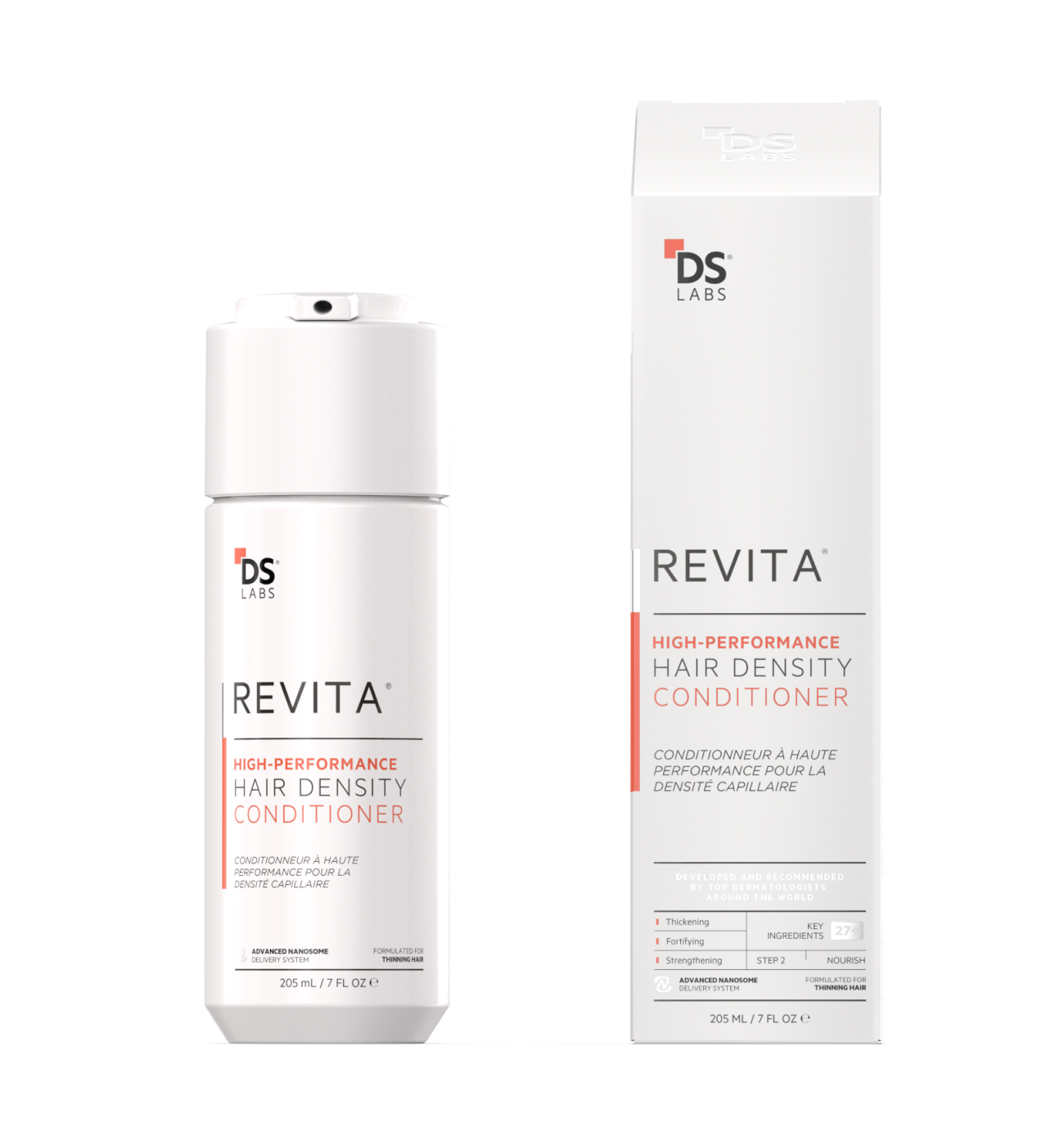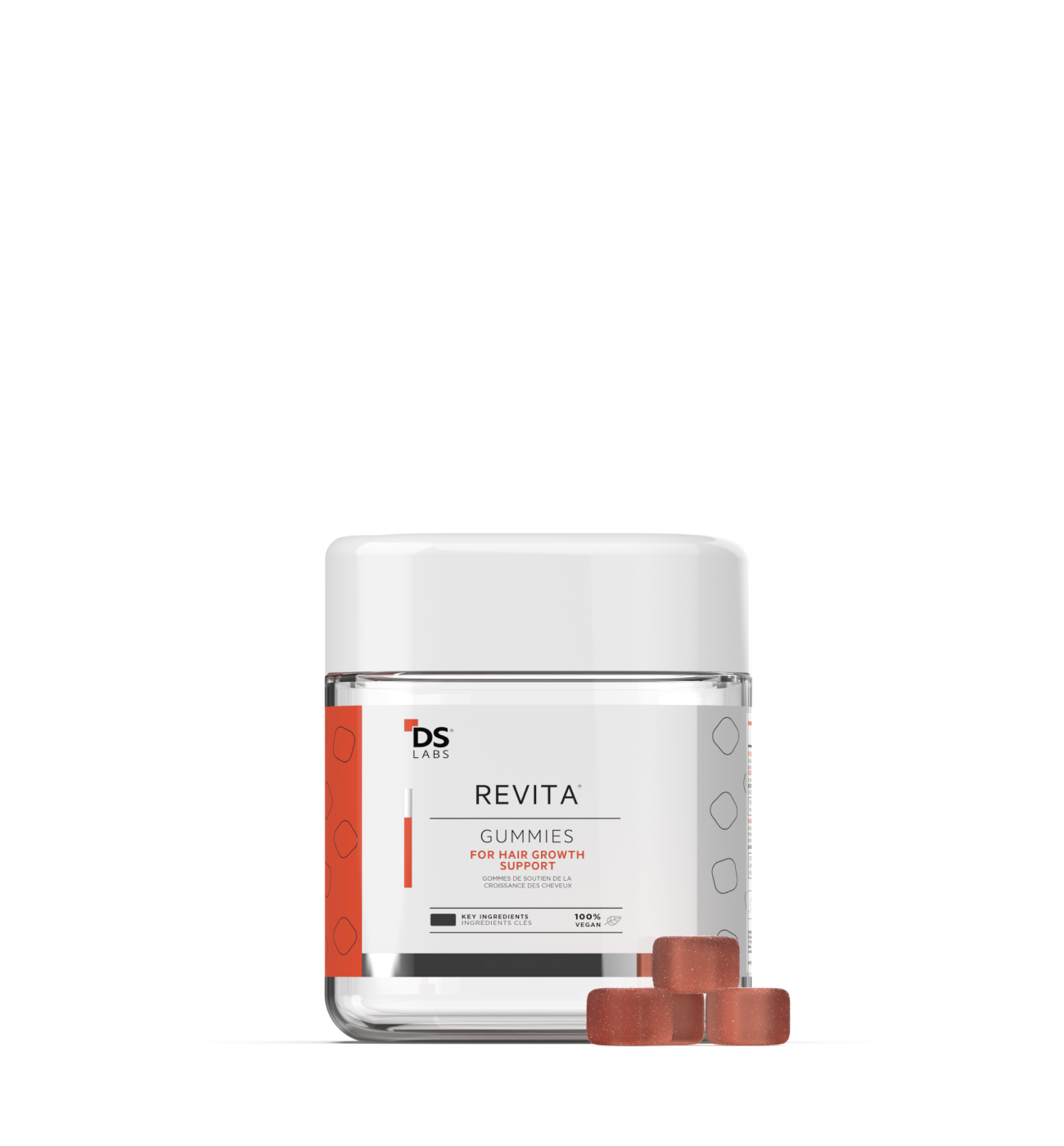There’s a reason why all those shampoo commercials always show women with thick, lustrous hair. Thick or dense hair appears fuller, shinier, and is a sign of youth.
Unfortunately, we weren’t all born with naturally thick hair. However, that doesn’t mean there’s nothing we can do to make our manes appear denser and more voluminous.
On the contrary, we’ve got a few tips and tricks up our sleeves to help you make the most out of the strands you’ve got. But before we dive into the nitty-gritty, let’s all get on the same page by agreeing on what hair density means.
What Hair Density Means
Hair density, also known as hair volume, refers to the number of hair strands on each square inch of your scalp. You could also say that it refers to how close your hair strands are to one another or how densely packed they are on your scalp.
What Impacts Hair Density?
Many factors can cause your hair to lose volume and become thinner over time. These include, but are not limited to:
- Chemical allergies
- Environmental aggressors
- Genetics
- Hormonal fluctuations
- Irregular sleep cycles
- Lifestyle
- Medical conditions
- Menopause
- Nutritional deficiencies
- Rinsing hair with hot water
- Pregnancy
- Stress
- Using heat-based tools
- Tight hairstyles
- Aging
3 Steps to Denser Hair
Genetics plays a part when it comes to hair density but there are also steps we can take to encourage thicker hair growth.
Here are three tried-and-tested tips that can make your tresses look and feel thicker.
1. Eat a Healthy Diet
What you eat affects your hair. Hence, you must eat healthy, well-balanced diet rich in healthy fats and protein as well as vitamins, minerals, and iron to provide your hair with the nutrients it needs to grow.
Here’s what you should include in your diet:
- It is rich in nutrients that can make hair thick and lustrous.
- Beans such as black, pinto, chickpeas, lentils, and green beans. They’re rich in protein, iron, and fiber.
- They’re packed with iron, omega-3s, biotin, and protein.
- Greek yogurt. It’s full of protein and calcium.
- Leafy greens like spinach. They’re a good source of iron and vitamins A and C.
- Nuts like walnuts and almonds. They’re great sources of fatty acids which moisturize your hair shaft and improve hair growth.
- Fatty fish like salmon or tuna. They’re loaded with protein, Vitamin D, and fatty acids.
You should also consider eating food that has the following vitamins:
- Vitamin B3 and B6 are good for iron deficiency.
- Vitamin C ensures better iron absorption.
- Vitamin D strengthens hair follicles.
Incorporating these foods into your diet will strengthen your hair from root to tip. They will also enhance the texture of your locks, giving your hair a natural sheen while improving the density of your hair strands.
2. Get Regular Oil Massages
Thin hair is not just limp, it’s also fragile. This makes it susceptible to breakage.
To improve your hair health, indulge in oil massages once or twice a week. They will boost circulation in your scalp, which can strengthen the roots by providing them with essential nutrients, relieving dryness, and removing toxins from the scalp. This can result in thicker hair based on a 2016 study.
It can also eliminate frizz and dryness, making it the most effective defense against hair thinning.
You can use coconut oil, argan oil, and olive oil during your massage to promote hair growth. However, make sure to do a patch test before using it on your scalp to avoid adverse skin reactions and/or allergies.
3. Use the Right Products
Hair care products can make or break your hair health.
If you’re facing thinning hair, it might be due to hair care products that have harmful ingredients such as alcohol and fragrances. They can disrupt your hair density and can make you susceptible to other health concerns.
That said, certain ingredients in hair care products can improve your hair health.
- To strengthen hair and boost hair growth, look for products with collagen, keratin, protein, vitamin C, biotin, and zinc.
- To moisturize hair and give it a beautiful sheen, use products with aloe vera, pro-vitamin B5, and glycerin.
- To remove impurities from the hair and scalp, consider products with cleansing ingredients like salicylic acid and activated charcoal.
Friendly tip: Certain products can interact with medications. Hence, you should check your medications’ product literature or consult your doctor before using hair products with new ingredients. Also, remember not to over wash or under wash your hair. Once a day or every other day is frequent enough for most people.
Word to the Wise: Thinning Hair Might Be Due to an Underlying Medical Condition
If you’re noticing persistent hair thinning even after making changes to your diet and lifestyle, it would be wise to see a trichologist at your earliest convenience.
Why? Because your hair thinning could be due to an undetected and untreated medical condition.
A trichologist or dermatologist can help you identify the root cause of the problem and check if anything is impeding your hair’s normal growth cycle. They can also recommend appropriate treatment to stimulate hair growth. With proper and consistent treatment, you can enjoy a head of beautiful voluminous hair in time.
Conclusion: For Thicker Hair, Make Diet and Lifestyle Changes
Hair thinning may seem like an irreversible problem but it can be treated with slight modifications to your diet and lifestyle.













